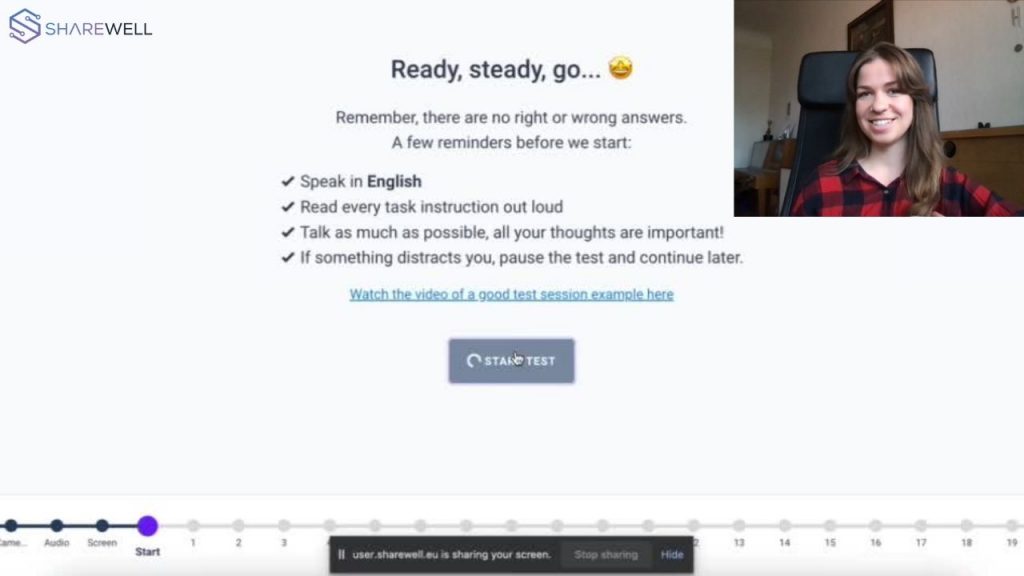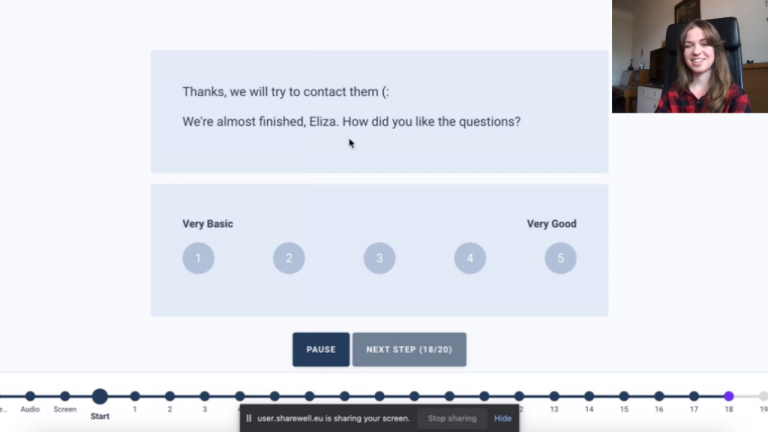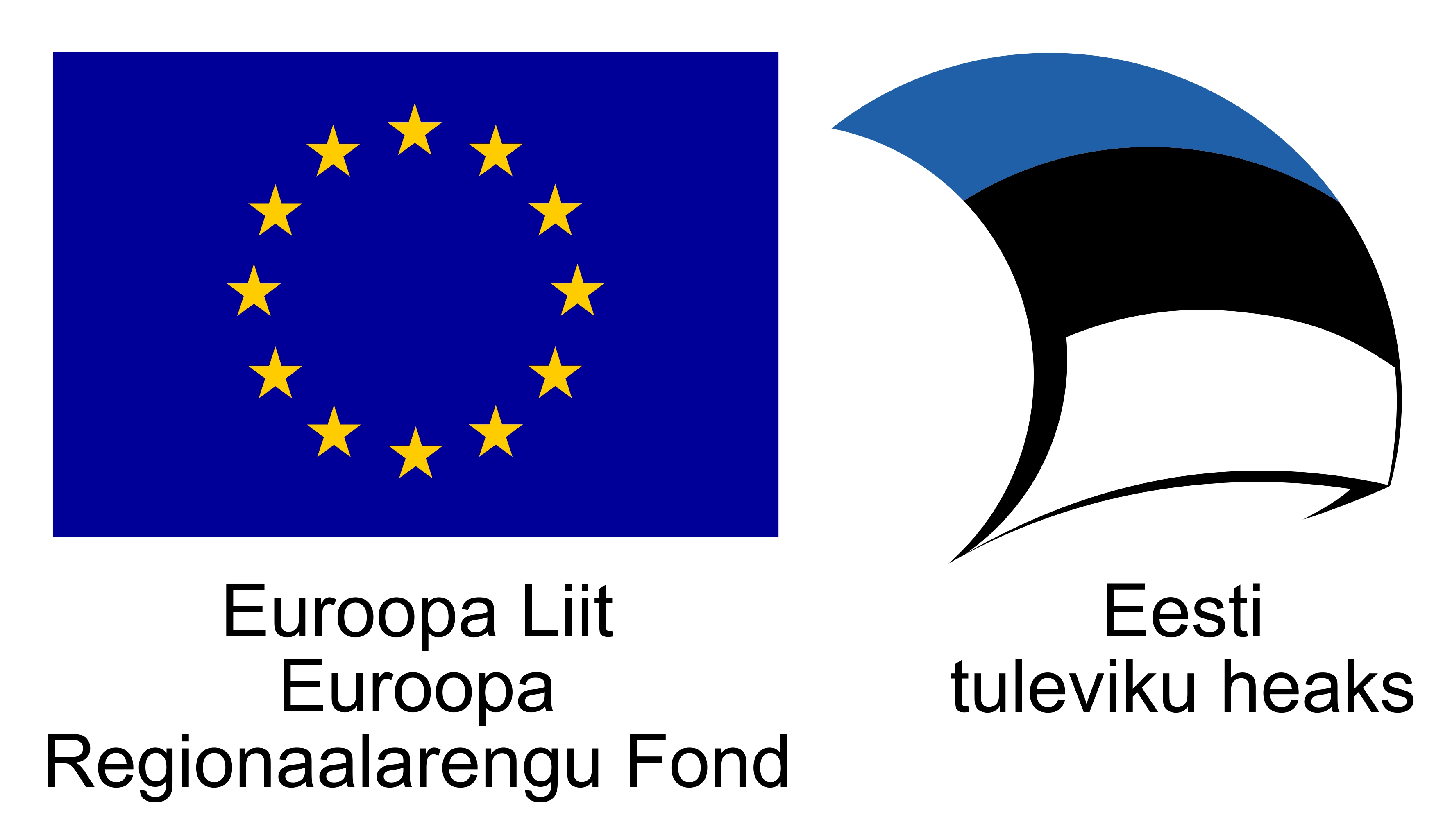UX PRO’s Unmoderated with Eliza Lasmane (transcript)

UX PRO’s Unmoderated 2nd session guest is Eliza Lasmane. She currently works at Printify to help print-on-demand sellers make more money with less effort. From fieldwork within the Belarusian anarchist movement to delivering a user insight worth $1’000’000 at a tech startup: Eliza seeks to evangelize the value of applied anthropology within the tech industry and beyond.
She was curious enough to join an unmoderated test and answer 20 questions about UX, her experience, and also give some tips for Sharewell followers. Eliza also discovers that it is not that easy to do the unmoderated test and chat with a computer.
This is the very close version of the automatic transcript of the unmoderated session created at Sharewell. If you prefer to watch the video, click here.
UX PRO's Unmoderated with Eliza Lasmane session transcript:

Task #1 Hello, Eliza! We are happy to have you here at the weird talk show. How are you?
Hello. Here I am talking to my computer. Happy to be here. I’m doing fine, and I’m excited to do this.
Task #2 Eliza, you went to study Cultural and Social anthropology straight after school. Have you always had a desire to research humans?
I have always been curious about the human experience. I think every one of us are, but in general, I think it stemmed out of my choice.
Paralysis in terms of like, you’re supposed to choose what you’re going to do for the rest of your life, as the society dictates. And I wasn’t really ready to make that choice. And then I simply stumbled upon anthropology. And I understood that through doing anthropology, I would be able to live countless lives. You know, just going through these stories of other humans and understanding the amount of different ways how you can live your life.
I think that’s what’s really appealed to me. Because every time you start a new research project, you kinda start all from the beginning. So that was really enabling for me.
Task #3 You did fieldwork within the Belarusian anarchist movement to study how anti-national sentiment manifests itself through music. Tell us more about it. Why did you choose this topic, and what were your discoveries?
Okay, so this one I did as a part of my master studies and conflict studies in a Utrecht university. So it happened that at the time when I was about to start thinking about my master’s thesis, there were some post “election” protests going on in 2017 in Belarus, and that really caught my attention.
So we were kind of pushed in the program to go and do fieldwork to really emerge ourselves within the lives of the people we were going to write about. And so it happened that Belarus is quite close to Latvia, which is where I come from. I didn’t have any real representation issues with that.
Happened that I’m also pretty much into punk music, which is the official genre of anti-government movement. So it was quite a logical choice.
What were my discoveries? The discovery itself was just the ability to write this whole story and kind of document what happened at that point in time. So what I essentially discovered is just a bunch of really, really brave people with a very particular moral compass that we’re able to live in accordance with their values within a very, very restricting regime. So, yeah, I think the main discovery was that it is possible to kind of escape the political reality of where you’re at and just create this amazing enclave of just equality and, and human rights and friendship and love within that regime.
Task #4 You are also a researcher at the Integration and Peace Institute. How does that go together with Printify?
Okay, about this one, I’m a bit sad about it. Because there isn’t really that much free time left for carrying out the institute’s activities, how we work is very, very project-based.
We don’t do as much research as we try to just spark the discussion of some important topics such as human rights and the importance of being open-minded in a democratic society and just, you know, fostering this democracy and fostering the dialogue. Not simply pushing over agenda, but really engaging in a dialogue and trying to understand the viewpoint of people that have different opinions.
And through this dialogue, we tried to kind of diminish the fear that stems out of not knowing the other person. So, yeah, generally we work very project-based, and, mostly during summer. So here and there are some some events pop up that are organized by us.
Task #5 Let's talk more about Printify. How is it? Tell us more about the culture and how it is to be a researcher there. Are there any positions open that people who watch this might be interested in?
Oh, yes, I’m excited. Yes, yes, and yes.
Okay, so about the culture. First of all, I was absolutely certain that, you know, I’m not going to work for a business. I’m going to work for society, but Printify is a product that actively promotes equality and enables people from all around the world to start their business without any investment. All you have to do is like, be creative, be a bit tech-savvy, be really determined about building a business, and then Printify is there for you.
So the culture itself is also very user-focused. Customer is our compass. So the whole culture is also very, very humble. Very curious and really, really growth-driven. My team, the UX research team at Printify, is absolutely the best team. You know, it feels great to everyday work together with individuals that come from different backgrounds. They have different experiences. They’re ready to share their knowledge; they are ready to help you out. You know, you just exchange ideas. It’s this really, really dynamic environment. And, you know, together, you achieve more essentially. Currently, within the research team specifically, we’re looking for senior researchers. We would love to get a research operations manager on board. You know, just we’re doing more and more research, so we have to somehow manage the whole thing in a more streamlined manner. So it would be great if that person would join us, and then we’re actually also looking for the head of research.
So if you want to be my boss, go to printify.com/jobs and sign up for the role.
Task #6 You’ve been in a field for a while and seen many new stars in the UX field rising. What would you say is the most common thing newcomers soon understand not to be true? What are the expectations of a job that are false in practice?
Okay, that’s really tricky. I’m probably going to base this on my own experience because I don’t really want to talk in anyone else’s name. So my main finding was that, you know, coming from an academic background, you want to be like, really precise about how you present the data, and you want to be very precise about the level of confidence.
And you don’t want to, like, come across as too assertive because that’s that’s not the good style in in academics. But actually, in a business environment, you have to learn how to sell your research through storytelling. You have to foster this empathy towards the user (that’s actually one of your main tasks as a UX researcher), and another quite an interesting aspect that I understood as soon I got into the role is that first, you have to research the business environment: your stakeholder. Understand how to talk with them. Because yeah, essentially, there are way, way more skills required and simply the ability of doing a spectacular job researching things.
Researching is just the first part of it. Afterward, you also have to make sure that there’s an impact stemming out from that. So probably that’s what I would suggest that any new joiners to just keep in mind and develop these skills if you’re not sure about them yet.
Task #7 We hear that curiosity and empathy are needed to work in your field. What do you think?
That’s an absolutely obvious statement, I would say. Being a researcher actually makes you really, really humble in a way that you are always the person not knowing things when when you’re talking to the users.
So essentially, you set out to learn everything about their context, everything about their needs, about their pain points, and you just have to throw all assumptions aside that you might have. Okay? I believe you could have, like, amazing ideas about how things could work and what would be the best solution.
But in, the beginning of the research is push, push all of that aside. And just be really curious, as if you would be approaching a topic that you have never heard of, like rocket science. And then, um, empathy. Of course, you have to empathize with the user, which is essentially one of the main building blocks of user research.
And then, you also have to have empathy towards the stakeholder. Actually, the whole world, the whole society, is built around empathy.
Task #8 What tools do you use in your daily work?
At Printify, we are using user testing for unmoderated tests. Dovetail for the tedious tasks of analyzing interviews, and you know, it’s just great that you don’t have to manually write a transcript of an interview. It’s amazing.
And my absolute favorite tool is Miro. I like for tools to be an extension of my brain. And Miro helps in a way that when you’re doing research, there are so many different types of data coming at you from different sources. How do you make sense of all of that?
Usually, when I used to do anthropological research, I always drew a lot of my mind maps. A lot of mind maps! I could do like, I don’t know, five a day. And then here in the business environment where you, in general, have to be way more dynamic, way more quicker Miro is a super helpful to just for organizing everything that goes around you.
Task #9 What is your favorite part of the research process?
It’s really, really hard to choose because the research process is amazing in a way that you have this stage when you’re actively interacting with people (which I very much like). I really love meeting Printify’s users every time and listening to their stories, and, you know. It just charges you in a positive way. But then again, I also really enjoy having this a long time and just digging through some data and just analyzing it and then synthesizing it and trying to make sense of all of that. So I would say it’s definitely these two.
Both the interaction with the users and then the analysis part. Probably the part that I don’t like is planning the research because it’s, you know, it makes you quite anxious. Because there’s so much stuff that you could do so, and you have to be quick. So you just kind of try to…try to make sense of all of that.
Task #10 What are the topics that should be discussed more in user research?
I think one big one that would really, really improve the impact that user research can have. The importance of educating the rest of your colleagues about: what is user research? Why is it important?
You know, just giving them some guidance and tips and doing some of the user research themselves. I think, yeah, we kind of sometimes see user research as something that’s detached from the rest of the processes that are going on. But it really shouldn’t be, because not only the problem validation starts with user research, but it also moves throughout the process of the solution validation.
And then also, it’s really good to have this research mindset when you are moving to the stage of already measuring the results of the implemented solution and seeing how how it performs over time. So just having this ability as… it doesn’t matter, like… what’s your position, you have to see everything through this research prism and be able to kind of see how it fits into things.
So I think, yeah, like all user researchers around the world, push hard for educating and just promoting the importance of user research among your colleagues. Because that’s how we make products that really do make sense.
Task #11 Can you recall a moment when the research discoveries were opposite from what you expected?
One thing comes to mind, I wouldn’t say it was the opposite of what I expected, but it definitely wasn’t what I expected.
So usually when you spot a problem in the quantitative data and then you set out to understand it in a qualitative manner. Like what exactly happens during that step, You know, Why is it so?
And then you’re kind of expecting that you will find a very specific answer. A very specific problem to solve and then you will solve that problem, you know, and all things going to be fixed. But yeah…. Recently, I had a case where, it simply turned out that the motivation of the people that went through this step, it wasn’t high enough. So it turned out to be more tricky than simply something not working for someone. And then… you know, then the whole discussion sparks: What do we do with the motivation? How do we work with that? Because that’s that’s something that’s a bit more abstract.
Nevertheless, an exciting find.
Task #12 How do you relax your mind after work?
Actually, I just enjoy going for really, really long walks with my dog and listening to music. So if it has been a tough day, like, I’m gonna be outside walking straight for, like, two hours and then coming back. And….Just so you have the ability to, like, make sense of all of your thoughts and be away from the screen a bit.
So yeah, walking’s great, do recommend.
Task #13 Let’s look at the design. One of our followers has a question for you:
“Initially, we created pollondesign.com for direct online sales of our product. However, now we have changed our focus to partnering with resellers as the primary sales channel, and we are actively expanding our partner network. What improvements would you suggest to make our website more suitable to attract potential business partners as our product distributors?”
To see their website, please click below.
Task #15 The previous guest Marcis has prepared a question for you: What has been your biggest struggle?
Thank you, Marcis, for the question.
I think the biggest struggle isn’t a specific occasion, but when you’re working in such a dynamic environment, you may experience a frequent shift of priorities. So it’s always quite tricky to plan out your research project. Especially if you have this expectation that you’re going to plan it out, and then everything is going to go in accordance with the plan and with the timeline.
But actually, halfway through the research, you could learn that. Okay, So, based on the findings you have had so far, you know, there have already been some decisions made, so you have to change the course of your research frequently.
So I would say that there is this continuous struggle when you’re trying to, like, merge your research ideas with a really, really dynamic environment.
But nevertheless, once you get used to it, you know, once you get into that flow, It’s actually quite exciting, but nevertheless, yeah, we always want for things to go as we have planned. Still, that doesn’t always happen.
Task #17 Eliza, who would you like to see as the next guest at this weird show?
I would like to nominate the person that actually opened my eyes to the possibility of anthropologist becoming a new UX researcher.
Many, many years ago I attended summer school ” Why the world needs anthropologists” and there was this amazing Slovenian anthropologist Dan Podjed telling a story about how anthropologists actually stand behind printers having this one big power button. And that’s when I realized- so you don’t necessarily have to go and live on a remote island as an anthropologist, right? You can work with the product and make real change! So yeah, Dan, I nominate you.

Task #18 Thanks, we will try to contact them (:
We're almost finished, Eliza. How did you like the questions?
I had to do a lot of reflection. That wasn’t easy for sure! But yeah, I very much enjoyed it, so I’m gonna write it as very good.
Task #19 Is there anything else you’d like to add?
Probably not apart from the fact that I now better understand our users that go through and moderated tests. You know, it’s not that easy just talking to your computer! Yeah, influencers might disagree. But yeah, in general, this has been great, and it all worked smoothly.
Task #20 Thanks for being a part of this journey! You are awesome!
Well, you’re awesome to Sharewell!
[The tester completed the session]
UX PROs Unmoderated in brief:
These are unmoderated test sessions with UX professionals that are magically turned into the weird talk show.
The unmoderated test includes questions that reveal our guest’s struggles, findings, learnings, and dreams. You’ll see on which topics their eyes sparkle.
The guest also goes through one website our followers have sent in and provide feedback with some suggestions.
Wanna be the first to receive a link to the next episode?


